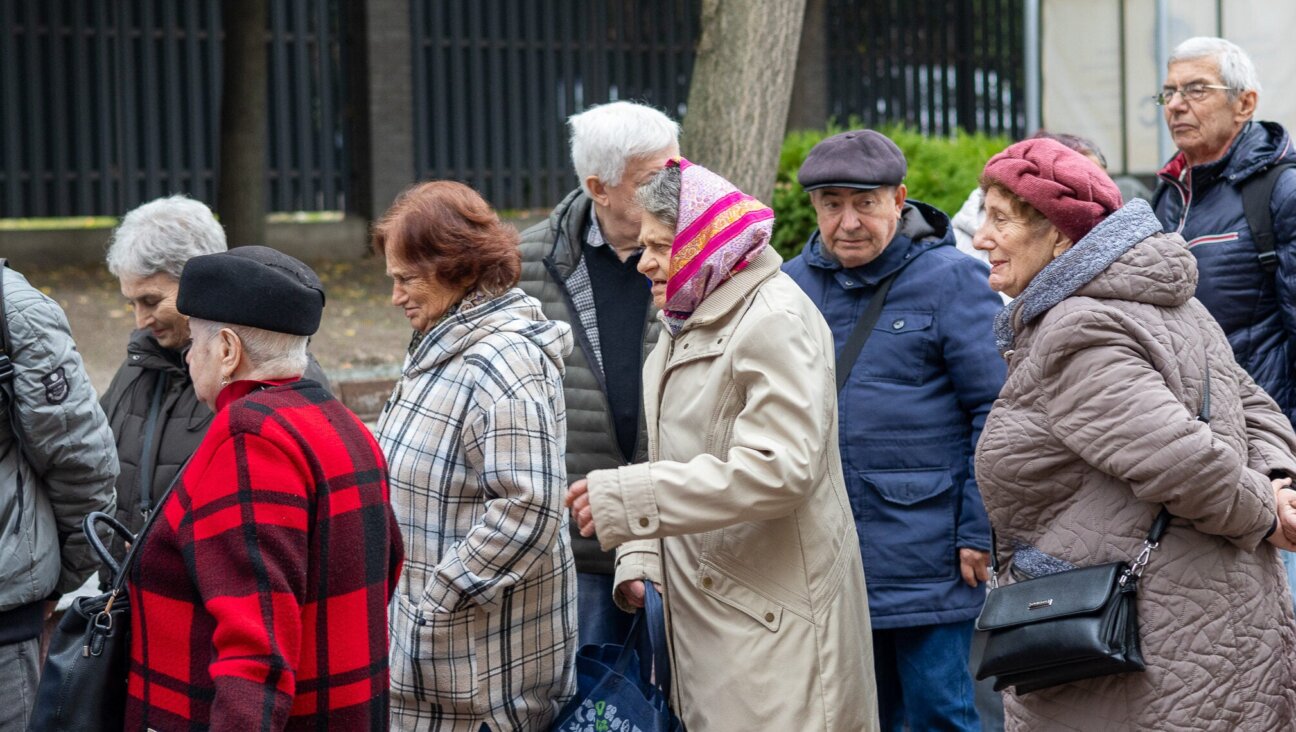With AIPAC’s Help, Students Invite Oren to Their Colleges

Graphic by Angelie Zaslavsky
Student government presidents at 71 predominantly Midwestern and Southern colleges have signed a statement inviting Israeli ambassador Michael Oren to their campuses — a response to recent protests against Oren’s presence at two coastal universities.
The statement, which cites incidents at Brandeis University and the University of California, Irvine, was drafted by student body presidents from Vanderbilt and Virginia Tech. The two circulated it among their peers after running it by the American Israel Public Affairs Committee, the pro-Israel lobby in Washington, at whose convention they met last year. AIPAC then helped them in their drive to gather signatories.
The statement presents its signatories as the voice of a silent majority, responding to campus protests that are outside the mainstream.
“Please be assured that these individuals do not remotely represent American college students or mainstream campus leaders,” the statement says, referring to the U.C. Irvine and Brandeis protesters. “Such behavior is absurd and offensive.”
The statement concludes with an invitation to Oren, Israel’s ambassador to Washington, to speak on the campuses of the signatories.
As of May 28, the organizers, who are still gathering signatures, had not yet sent their statement to Oren. A spokesman for the ambassador said his office had no comment.
Oren’s campus appearances became an issue in February, when nearly a dozen students took turns interrupting his address at U.C. Irvine. Oren was able to finish his talk, and the protesters were each arrested. Then, in April, some Brandeis students voiced objections to Oren’s selection as a commencement speaker, saying that he would be a divisive presence. The campus student newspaper supported the students in an editorial. Despite this, and petitions organized by students, the graduation ceremony, including Oren’s speech, took place uneventfully on May 23.
“Those kinds of views are definitely part of the fringe in terms of American college campuses,” said Wyatt Smith, one of the statement’s organizers, referring to the objections to Oren. Smith just completed his term as president of the student government at Vanderbilt University in Nashville, Tenn.
Nearly half of the 60 student government presidents who had signed the statement as of May 24 hail from Southern schools. Most are large public universities. Some are sectarian, including the evangelical Liberty University in Lynchburg, Va., founded by the Rev. Jerry Falwell; Kentucky Christian University in Grayson, Ky., and New York’s Yeshiva University. Some are elite colleges, including Tufts University, George Washington University and Washington University in St. Louis.
Many of the student government presidents who signed the statement attended AIPAC’s Washington, D.C., policy conference in March, according to the statement organizers. AIPAC press materials claim that the conference drew more than 213 student government presidents.
“That’s the largest [gathering] of student body presidents I’ve been a part of,” said Smith, who is not Jewish.
At the conference, AIPAC’s leadership development director, Jonathan Kessler, described AIPAC’s campus-organizing strategy in a speech, video of which was posted online by JTA. “How are we going to beat back the anti-Israel divestment resolution at Berkeley?” Kessler asked, referring to a University of California, Berkeley student government resolution that was eventually vetoed. “We are going to make sure that pro-Israel students take over the student government and reverse the vote… This is how AIPAC operates in our nation’s capital. This is how AIPAC must operate on our nation’s campuses.”
Following the conference, student presidents who attended created an e-mail list to stay in touch. Brandon Carroll, who was the primary drafter of the statement and is the outgoing student government president at Virginia Tech, said that the list was used not only to talk about Israel, but also general student government issues.
After Carroll and Smith composed their statement in support of Oren, Carroll said that he ran it by an AIPAC employee. But both Carroll and Smith say that they circulated the petition themselves, both over the e-mail list and through other networks of student presidents.
“Students completely self-initiated this processes,” said Carroll, who is Jewish. “AIPAC set us up with the avenue, but we all built the relationship.”
Still, AIPAC staff members did approach at least two student presidents about signing the statement, either directly or through student intermediaries.
At Penn State University, Hillel president and AIPAC campus liaison Michal Berns was asked by an AIPAC staffer to ask the campus’ student government president, Christian Dupree Ragland, to sign the statement. Ragland signed.
“For me it was very simple,” Ragland said. “I didn’t have a political view about it at all. At our university anyone is allowed to come and speak.”
And at Mississippi State University, the student government president, Thomas Sellers, was approached about the statement separately by both Smith and an AIPAC staffer. He also signed.
“When Brandon began circulating his letter among the [student government] presidents he met in Washington, we were honored to help get the word out and encouraged those looking to be supportive to sign on,” wrote Josh Block, an AIPAC spokesman, in an e-mail to the Forward. “This is the kind of student led pro-Israel effort that the community should loudly applaud, and these young leaders are to be commended.”
Contact Josh Nathan-Kazis at [email protected]

















